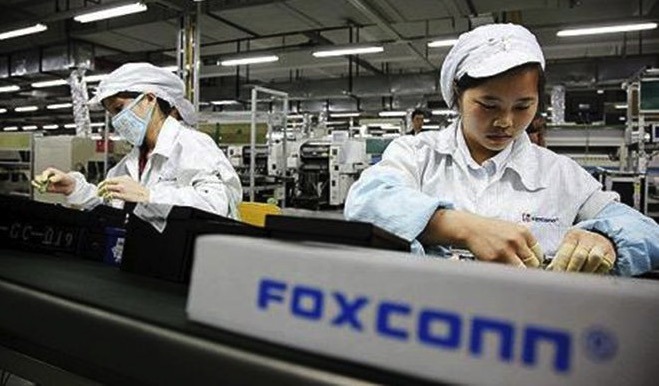Despite some research by Foxconn with a slightly positive angle towards moving some efforts to the U.S., other Apple supply chain vendors are likely to not move, citing labor and operating costs.
According to Chinese-language qq, suppliers like Lens Technologies, an iPhone glass vendor, will not set up shop in the U.S., even if Foxconn does. Lens cites high-wage workers and reluctance amongst the U.S. workforce to accept variable schedules depending on surges and dips in product demands.
Positives to U.S. factories cited by Lens are lower power and land costs.
Another, unnamed, Apple parts vendor quoted by the report says that a complete supply chain won't exist in the U.S., making the entire fabrication process more nimble in China. An order involving molding metal components takes about 10 days in Shenzhen, but will likely take a month or more in the U.S. without a complete process in-country.
In June, Apple reportedly asked iPhone assemblers Foxconn and Pegatron to evaluate the possibility of moving manufacturing efforts to the U.S. Foxconn Chief Executive Terry Gou was said to be critical of the plan, saying that labor and other associated costs would more than double, should the plan come to fruition.
Pegatron denied to develop a plan, citing obvious cost concerns.
The study was probably spawned because of potential political pressure and taxation for Apple promised by President Elect Donald Trump during campaigning for the office. Trump's campaign promise of a 35 percent tariff levied against products like the iPhone manufactured overseas, is presumed by the President Elect to give companies a significant economic incentive to bring manufacturing jobs back to the U.S.
"To make iPhones, there will need to be a cluster of suppliers in the same place, which the U.S. does not have at the moment," Apple CEO Tim Cook said in an Dec. 2015 interview about a possible shift. "Even if Trump imposes a 45 percent tariff, it is still possible that manufacturers will decide to continue production overseas as long as the costs together with the tariffs are lower than the amount they need to spend on building and running production lines in the U.S."
A 35 percent cost increase, regardless if induced by labor and material shipping costs, or a tariff would likely passed on to consumers. Studies vary on the exact impact, but range between a 10 and 20 percent in Apple's cost to manufacture the phone, between increased labor costs, and the need to ship some components and materials to the U.S. plant.
 Mike Wuerthele
Mike Wuerthele







-m.jpg)






 William Gallagher
William Gallagher

 Christine McKee
Christine McKee
 Malcolm Owen
Malcolm Owen
 Marko Zivkovic
Marko Zivkovic

 Andrew Orr
Andrew Orr
 Andrew O'Hara
Andrew O'Hara



-m.jpg)


37 Comments
Apple suppliers to moving to the U.S. would require them to figure out how to produce the same parts at the same price because Apple is certainly not going to pay more. That, of course, would require intensive automation which would limit the number of jobs created. And jobs is supposedly the object of this political game is it not?
This is not surprising. Electronics components is a brutally price sensitive business, and there's no way that it sets up in any sufficient quantities in the US. Automation notwithstanding.
This is probably the reality of the situation. However, we need to be committed and driven to improve the manufacturing situation. Many have said this is dead in the US. That it is too late. That is poor thinking. There are significant opportunities for manufacturing in the US. We need to work hard together to make it a reality. It will not be easy. We have a very high percentage of people that will not work. It is an uphill battle but one that is worth fighting. We also have to realize that the landscape has changed. This means we have to get schools that are geared right for what we need in the future. Not what we needed 20 year ago. Side note. I visited a college campus a few months ago. It is a great university but I was surprised at how ill equipped they were to build on the future. We have to adapt to the times. A bit preachy I know but some people have to wake up and move the ball down the field or we will be left behind.